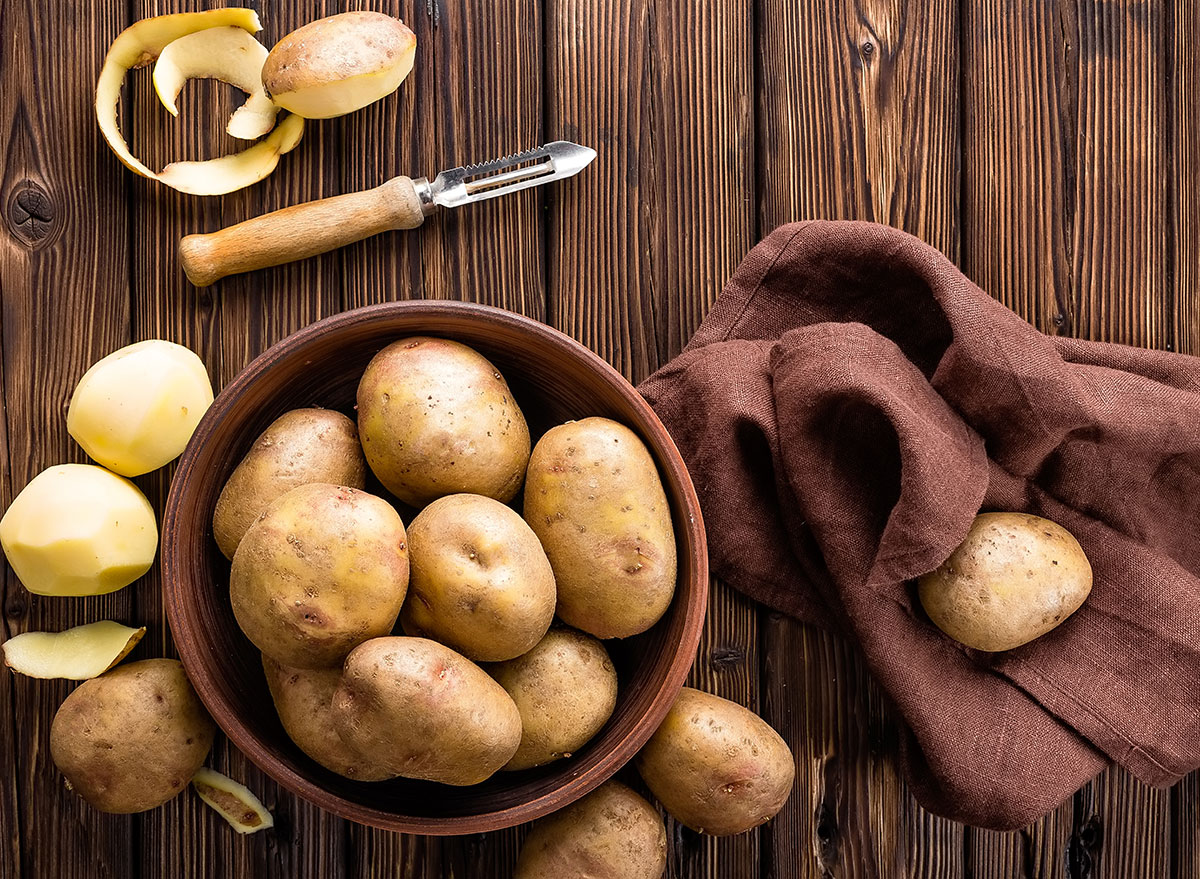You May Be Able To Eat More Potatoes Than You Thought, Study Suggests

If you adore potato salad, scalloped potatoes, or sweet potato fries, then you might be concerned about how they're affecting your body. The good news is that a new study has found that potatoes might be healthier than we thought.
Conducted by researchers at Boston University, the study was published in the Journal of Nutritional Science and involved 2,523 participants who were 30 years old and older. They assessed the eating habits and health of participants over time to understand to what extent the regular consumption of potatoes by healthy adults could potentially have an adverse impact on their cardiometabolic health.
What happened in the study
Though this study was just recently published in September 2022, researchers actually began collecting data in 1971 from around 70% of participants and continued this throughout the subsequent years. Those behind the study took a look at how many and what types of potatoes participants would eat, such as white potatoes and sweet potatoes.
As for preparation, participants were eating 36% baked potatoes, 28% fried, 14% mashed, and 9% boiled, while the remainder were additional options. The researchers also noted the ongoing health of the participants.
The study's results

In the case of healthy adults, the overall results showed there was no connection between eating four or more cups of white potatoes or sweet potatoes—whether fried or not—each week and an increased risk of health issues, including hypertension and dyslipidemia.
Beyond that, participants who ate fried potato dishes had a lower risk of dealing with various health issues if they weren't as likely to eat red meat or were physically active. Specifically, they were 24% less likely to develop Type 2 diabetes and 26% less likely to have elevated triglycerides.
The implications of the study
"It's not surprising that potatoes weren't associated with risk of diabetes, high blood pressure, or elevated triglycerides because potatoes are a whole, unprocessed food," DJ Blatner, RDN, CSSD, and author of the Flexitarian Diet tells Eat This, Not That!
"Potatoes are a vegetable that contains quality carbs and fiber. One medium potato is a good source of potassium, which is an electrolyte that aids in muscle, cardiovascular, and nervous system function," Blatner explains. "[They're also] an excellent source of vitamin C, which acts as an antioxidant to help prevent cellular damage."
"They count as a nutrient-dense vegetable, and it's a food group that 90% of people don't get enough of," Blatner notes, with respect to the major benefits associated with eating potatoes. "The U.S. Dietary Guidelines suggest we eat at least 2.5 cups of veggies each day, and of that should be five cups of starchy veggies each week."
"The only thing to look out for is what you are pairing them with," Blatner advises. "Include potatoes in balanced meals more often and not just meals with steak or burgers. Enjoy classic [baked] potato toppings like butter, cheese, and sour cream—but in small, condiment-sized amounts. And try other nutrient-dense toppers, like veggie and bean chili, green onions, and avocado."
As for other healthy ways to enjoy potatoes, Blatner suggests preparing them in an air fryer.
"[Air-fried potatoes] are so fast and a great side dish for breakfast or dinner," she says.
According to Blatner, other creative ways to prepare and serve potatoes include using spuds as "a fun addition to snack and charcuterie boards." She also suggests trying sheet-pan "nachos" using potatoes in lieu of tortilla chips and nutrient-dense toppers like black beans, tomatoes, onions, and guacamole. (Yum!)








